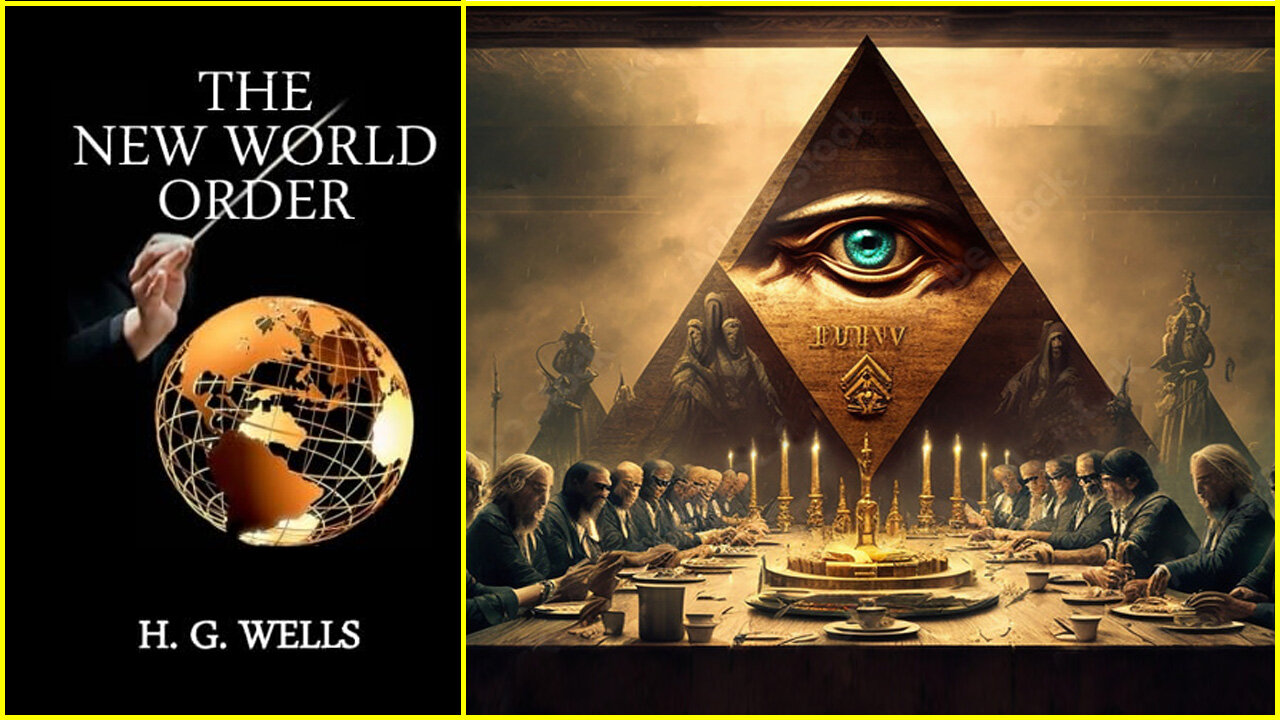Premium Only Content

'The New World Order' (1940) by H G Wells
In 'The New World Order', Wells presents his vision of a post-World War II world where humanity unites under a single, global government to achieve peace and progress. Written during the turmoil of World War II, the book is both a critique of nationalism and a blueprint for a future world order based on rational governance and shared human values.
Critique of Nationalism: Wells argues that nationalism and the division of the world into competing nation-states are the primary causes of war and conflict. He believes that humanity must transcend these divisions to avoid destruction.
Global Government: Wells envisions a centralized world government that prioritizes the collective good over individual national interests. This government would be based on principles of equality, scientific progress, and social justice.
The Role of Science and Rationality: Wells emphasizes the importance of science and education in creating a rational and efficient global system. He sees science as a unifying force that can solve humanity's problems, from poverty to war, if applied wisely.
Economic and Social Equality: The book advocates for a more equitable distribution of resources, arguing that economic disparity fuels unrest and instability. Wells believes that a global order must address these inequalities to create lasting peace.
Moral and Ethical Transformation: Wells suggests that a new world order requires not just political and economic changes but also a transformation in human values. He calls for a universal sense of responsibility and cooperation, moving away from selfishness and competition.
The New World Order is an idealistic and speculative work, reflecting Wells’ belief in humanity’s potential for progress through unity and reason. While its ideas are ambitious and controversial, the book is a powerful expression of Wells’ hope for a better world amidst the chaos of war. It remains a thought-provoking exploration of global governance and the challenges of creating a peaceful and equitable future.
-
 1:04:51
1:04:51
State of the Second Podcast
16 hours agoCarrying on Campus: Rights or Risks? (ft. Cheryl Todd)
17.7K2 -
 21:09
21:09
Dr David Jockers
21 hours ago $0.67 earnedAutophagy Fasting: What Happens to Your Body + Best Autophagy Enhancers
19.1K1 -
 2:31
2:31
BIG NEM
12 hours agoCOMPLETE EMASCULATION: His Relationship is TOAST!
33.5K1 -
 3:11:17
3:11:17
FreshandFit
10 hours agoRed Flags In American vs Foreign Girls
105K71 -
 4:44:05
4:44:05
Sgt Wilky Plays
13 hours agoGoing Ranked....but why? I dont know
97K7 -
 1:00:48
1:00:48
BlaireWhite
1 day agoThey're Lying About The "Drones". Something Big Is Happening.
60.5K33 -
 1:02:26
1:02:26
barstoolsports
15 hours agoPretenders and Contenders are Decided | Surviving Barstool S4 Ep12
122K6 -
 1:08:31
1:08:31
Kim Iversen
15 hours agoWhat Happens If You Refuse to Vaccinate Your Kids? | Days After CHD Sues Meta, Zuckerberg Says ‘No More Censorship’, Coincidence?
128K119 -
 5:04:19
5:04:19
Nobodies Live
14 hours ago $7.29 earnedNobodies Rumble TEST STREAM
78.9K13 -
 47:03
47:03
Man in America
19 hours agoEXPOSED: The Dark Web of UK Rape Gangs, Political Blackmail, and Corruption w/ David Vance
97.1K60